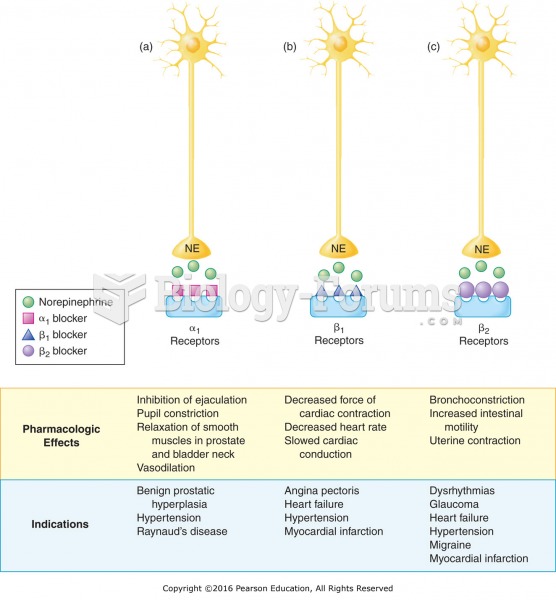|
|
|
When Gabriel Fahrenheit invented the first mercury thermometer, he called "zero degrees" the lowest temperature he was able to attain with a mixture of ice and salt. For the upper point of his scale, he used 96°, which he measured as normal human body temperature (we know it to be 98.6° today because of more accurate thermometers).
During the twentieth century, a variant of the metric system was used in Russia and France in which the base unit of mass was the tonne. Instead of kilograms, this system used millitonnes (mt).
To maintain good kidney function, you should drink at least 3 quarts of water daily. Water dilutes urine and helps prevent concentrations of salts and minerals that can lead to kidney stone formation. Chronic dehydration is a major contributor to the development of kidney stones.
The heart is located in the center of the chest, with part of it tipped slightly so that it taps against the left side of the chest.
Most strokes are caused when blood clots move to a blood vessel in the brain and block blood flow to that area. Thrombolytic therapy can be used to dissolve the clot quickly. If given within 3 hours of the first stroke symptoms, this therapy can help limit stroke damage and disability.
 Durkheim believed that modern societies produce feelings of isolation, much of which come from the ...
Durkheim believed that modern societies produce feelings of isolation, much of which come from the ...
 Pharmacologic effects and indications of adrenergic antagonists: (a) blockade of alpha1 receptors; ...
Pharmacologic effects and indications of adrenergic antagonists: (a) blockade of alpha1 receptors; ...





